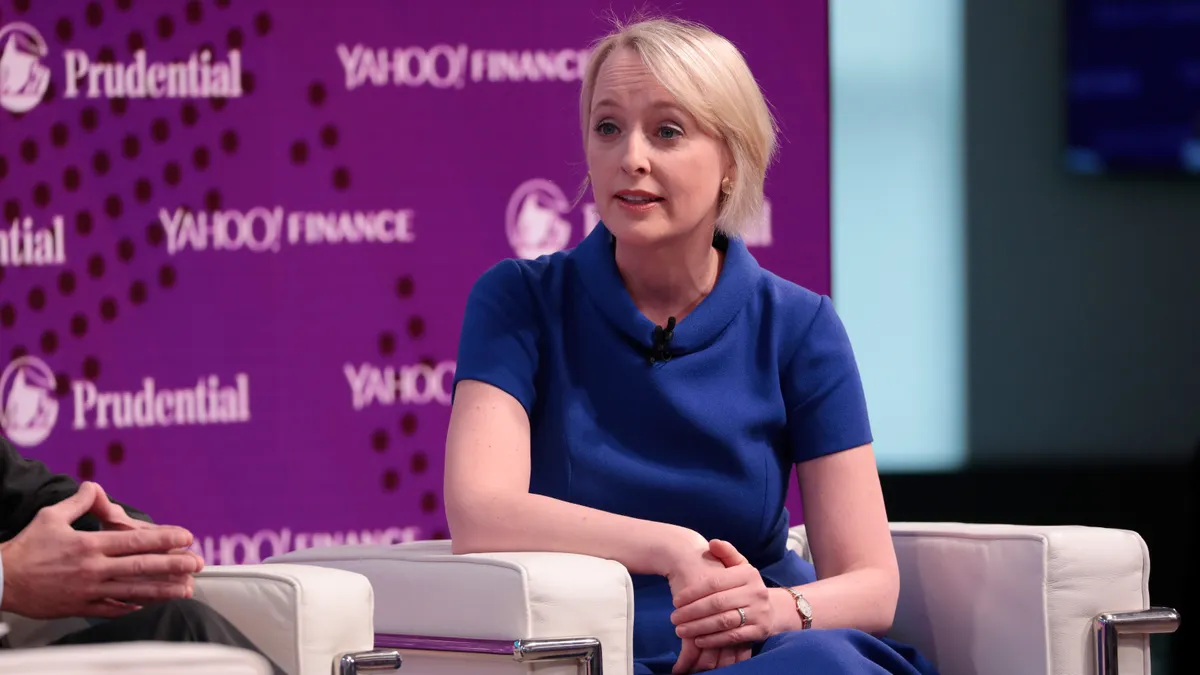Like many general counsel, Jennifer Zador is curious about how generative AI will impact her department’s workflows. As the new GC of PlanSource, a Florida-based technology company that creates platforms to administer employee benefits, Zador is charged with scaling the department at a time of company growth.
She’s also seeking greater automation for her team of six – paralegals, contract administrators and contractors – and is working to migrate PlanSource’s legal department to its first contract lifecycle management platform and to integrate AI tools.
Zador, who is also chief compliance officer, joined PlanSource after working in technology for many years. Her experience includes managing through the December 2020 “Sunburst” SolarWinds cyberattack as part of the tech company’s in-house legal team, where she spent more than a decade. PlanSource is owned by private equity firm Vista Equity Partners and has around 5 million consumers who receive their employee benefits through PlanSource’s platform.
Zador is the mother of three children (1, 3 and 7) and attended law school at Case Western Reserve University after earning her undergraduate degree in business administration. She also has studied and worked as a professional dancer, including a stint with the NBA’s Cleveland Cavaliers.
Editor’s note: Legal Dive’s conversation with Zador has been edited for clarity and length.
LEGAL DIVE: Does every legal department need a legal operations function or do you think that’s governed by an organization’s size?
JENNY ZADOR: There is an aspect to that function in any organization where you wear two hats. But I think if you're not thinking about legal operations overall in your day to day, as a GC, you're not necessarily doing your job. Because we should be, in this day and age, automating and removing things from manual review, and trying to build in AI as much as we can, in terms of contract review, with manual reviews on the tail end.

Do you need another attorney? Several?
To be honest, I don't know yet. I think we need to do some automation before I can take another step back to figure out what we need in terms of heads.
Generative AI is probably the most urgent topic in legal technology today. How do you see AI’s role fitting within your workflow? Will it be revolutionary or do you think it’s mostly hype?
From a truly legal and compliance perspective, especially on the compliance side, there are different tools that help you automate, including automating your compliance function, in terms of policies and procedures. But on contract review, you have tools that will do the contract review and will scan your templates, figure out whether you’re market or not based upon what you're doing. But that also is not industry specific, based upon what I've seen so far. I think what I'd like to do is get that CLM with AI built in, so that we can build playbooks and redline and automate and then build in the people on the back end so that they’re doing substantive things.
I think from a company perspective, understanding AI as to how the company is using it is really important. Especially when you're dealing with personal information and personal health information, I think we need to understand it. There are internal and external uses, right? Are you engaging from a support standpoint, or, hey, am I building code, and am I generating code with the use of AI and where is that going? Is it a closed universe, or is it open? Where am I feeding all that data? So I think really working with the business is really important from an AI usage perspective as well. So yes, how can we use and leverage AI in the legal and compliance side? But how is the company overall using it, and how are you as a team interacting with the business to make sure it's using it wisely?
Do you think AI poses any particular risks in your business?
It's always a risk, right? But it's how do you best manage the risk, and how do you work with the business to minimize it? I think in our roles, especially as a GC, you're enabling the business. So you're not removing risk from the company. You need a company to operate, right? If you're completely locked down, how operational are you going to be? And so you just need to pick your battles and lean in on the risk where it's really present.
How long have you been working in law, and what made you want to go to law school?
I've been practicing for almost 20 years. I love my job, truly. I love helping a business operate. I love getting in and rolling my sleeves up and helping an organization build itself to become more scalable and more efficient. And I think you do that from a legal perspective, also from a compliance perspective as well. So I love, truly, both aspects of my position. Why did I go to law school? So, my mother, she was a speech pathologist for orthopedically handicapped children. She was in the school system, helping people learn to speak and communicate. And my dad was a trust officer. And what I thought was so beautiful about what he did is, he took what [people] wanted to do with their intentions and their money and their assets, and he executed upon them when they were no longer there to voice their preferences. I thought what he did was beautiful, because he basically was an advocate for people that couldn't be an advocate for themselves any longer. He and I would go through wills and trusts when I was in middle school and high school, and that got me interested in legal documents, and that's actually how I ended up in law. I definitely like the words and the advocacy was definitely super appealing to me.
What was your career plan after law school?
I actually clerked all through law school. I taught dancing. I danced for a soccer team during law school and I clerked at a law firm throughout my tenure in law school. And so my first position while I was in law school was in insurance defense. That taught me a lot about litigation, but it also taught me that I shouldn’t be in litigation. Then I transitioned over to McDonald Hopkins, and that was intellectual property, and that's where I got into trademark, copyright prosecution, licensing – that side of the house. And that resonated with my person a lot more than litigation and insurance defense.
What’s the biggest challenge you’ve faced in your legal career?
The biggest challenge, along with the most fascinating, was the SolarWinds security incident in December 2020. While SolarWinds and its legal team are still working on this issue, one of the biggest takeaways from that incident for me was that as counsel, you need to maintain a calm and confident leadership position at all times. In our role, having the capacity to remove the emotion from the situation and execute as needed is crucial. In addition to maintaining a calm and collected demeanor, our communications, especially during moments of crisis, must be clear and concise.
What are some issues right now that you think a GC should be contemplating?
I think if you’re in technology, you’re constantly taking a look at privacy and security regulations, any AI regulations and frameworks. And employment laws are changing as well, but especially with the [FTC] noncompete issues that are coming out. But I think if you're in tech, privacy and security should be top of mind.
How do you generally work with outside counsel?
They’re an extension of you. I’m a generalist. I know enough to be dangerous in a large number of areas. When I need specific advice, and I know I’m capped in terms of my knowledge, I reach out and get that very-specific guidance I need. Trusting them is really important. I tend to reach out to people that I know and I’ve worked with before because I trust their experience. Speed of response, accuracy and them being up to date so that they are scouring the specific landscape that you need them to be knowledgeable about is really important.
Do you have a single firm you keep or do you consult different firms as questions arise?
I go to different people based upon the question. If you go to a large law firm, they’re phenomenal, and they’re really great at what they do, but at a company of our size it’s not that I can pay $2,000 an hour for every outside counsel consultation that I need.
But if there is something that impacts the organization as a whole, or it’s going to be part of our standard template, or our standard operating procedure, that's when I'll leverage that, and if I need to get a little bit more one-off, then I might look for something that’s more reasonable in terms of price. What’s beautiful about outside counsel now is you have a lot of people from large firms setting out their shingle or joining a smaller cohort but they still have that expertise and experience, which is awesome.



















